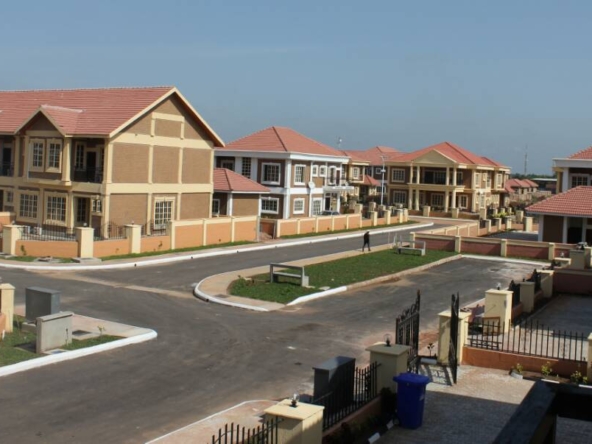Real estate investing doesn’t come with a map, and the road to riches is often winding. That being said, there are things you can do to put yourself on the right path and ensure your best chances for success. Listening to real estate professionals and successful investors is a great place to start.
1. Find rental properties in emerging neighbourhoods
“Rental properties represent a great way to get involved with real estate investments. Emerging neighbourhoods offer growth potential and tax incentives for buyers. Buyers that purchase properties in emerging neighbourhoods maximize profits and ensure that their income covers their costs.” – Ralph DiBugnara
2. Diversify your investments
“It’s commonly preached that the best real estate investment is the one in your backyard. While there is merit to understanding the area in which you’re investing, I believe that you’re truly limiting your profitability potential by only considering a small geographic area.
By considering investments in other states and cities you’ll have a large pool of available investments and ultimately better opportunities. Investing across a large geographical area also further diversifies your investments and protects your portfolio against the volatility of local markets.” – Jeff Miller
3. Leverage the experts
“Investing in real estate has a lot of moving pieces. When you’re first starting off it is critical that you leverage experts in each area of the project to ensure success and minimize mistakes.
Real estate companies are a great option for investors since they’re a team of experts who have already conducted the due diligence on your behalf. There’s no point in reinventing the wheel when there is already a proven process available to you.” – Evan Roberts
4. Get to know your market
“When investing in real estate, it is important to learn about and become an expert in your selected market. Being well informed on the current trends, including any decreases or increases in the average rent, income, interest rates, and even unemployment/crime rates will allow you to recognize the current market status and plan for the future.
Being able to constantly forecast and stay a step ahead of the market can help lead you to become a more effective real estate investor.” – Sacha Ferrandi
5. Set a budget and timeline
“My rule of thumb is that you should set aside 50% more of your budget as reserves, especially as a new investor. Your budget almost always goes higher than anticipated and when you’re rehabbing houses, one issue can detect another one, etc.
For example, fixing a leaky pipe may turn into replacing the pipe and removing mould damage and replacing the drywall. In terms of timeline, I would say that the same thing goes: If your timeline is 60 days, prepare for the project to take 90 days. With added expenses, comes added time.” – Allison Bethell
6. Have a rainy day fund
“When buying rental houses for cash flow, make sure you account for all of the expenses and have rainy day funds set aside for future expenses. For the last decade of owning rental properties, our annual expenses (excluding debt servicing costs) have averaged between 45-55% (depending on the year) of the gross rent. These are for properties that rent between $800-1,000 per month.
If you are renting out higher-end properties, your ratios may be different, but for most markets, your ratios will be very similar to these. Make sure you keep a reserve in place to cover unforeseen expenses because you never know when they will hit.” – Brady Hanna
7. Treat your investments like a business
“Real estate investing is a business and like every other business, it requires purposeful planning, execution, and management. The most successful businesses are run by high-quality people at every level of the organization.
Those that ignore this fact are destined to struggle or even fail. Regardless of how big or small you want to grow your real estate investing business, if you want to succeed then you must run it like a business.” – Chris Counds
8. As your portfolio grows, stop being a jack-of-all-trades
“Most of the time, new real estate investors convince themselves that they’ll manage the property themselves. That’s fine, as long as you have the time, energy and know-how. But as the number of rental units you own grows, you will probably need to outsource this task and this outsourcing comes at a cost.
To avoid any nasty surprises when buying a property, consider crunching the numbers to factor this cost in before you actually take on the cost. That way when you decide to hire a property manager the fee is already factored into your profit-and-loss calculations. In the meantime, remember that acting as your own property manager is an expense—so pay yourself.
This will help lower the tax owed on the revenue you earn, and it helps to remind you that your time is worth more than a freebie.” – Michael Jakobczak
9. Have multiple exit strategies
“One should never buy a property without having multiple exit strategies. Take flipping for example. If you’re just starting out or don’t have a ton of extra capital, you want to mitigate your risk factors by buying properties that have good enough numbers to be a rental as well.
If you’re buying flips and the market tanks, but the property would be even or negative cash flow when rented out then you’re most likely going to lose tens of thousands of dollars.
Flipping starter homes that are in the price ranges that can be rented out for solid cash flow every month allows you to either build wealth by keeping them as rentals or mitigate your risks when things go sideways.” – Shawn Breyer
10. Start with single-family rentals
“Single-family homes (residential homes) are your safest bet for attracting the correct tenant. Everyone would love to live in a house. Some people just cannot afford to or do not want to own. The single-family home historically has over the last hundred plus years always appreciated.” – Don Wede
You can contact Realdots Properties if you would like to buy any properties within Nigeria and we would be glad to assist you with your investments.




